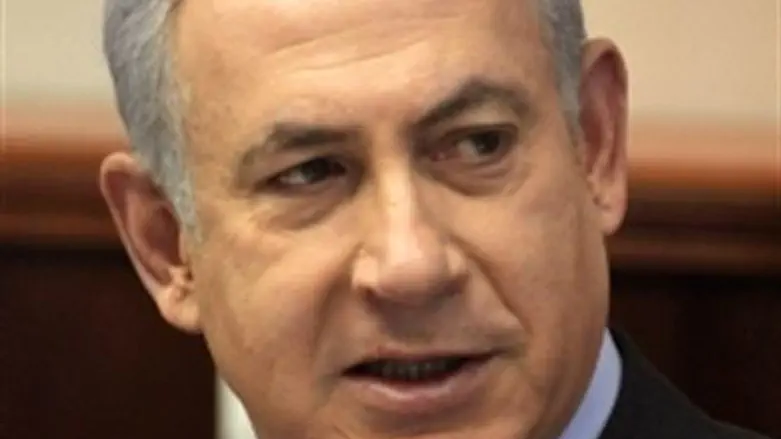
Flip-flopping by Palestinian Authority Chairman Mahmoud Abbas over whether it is really time to sit down and talk about peace is being taken with equanimity by Israeli government leaders.
Prime Minister Binyamin Netanyahu noted in his remarks at the opening of Sunday's weekly cabinet meeting that he remains ready to sit down for final status talks with the PA leader.
"I watched President Abbas's interview over the weekend,” Netanyahu said. “I have heard that he has already managed to go back on his remarks. This only proves the importance of direct negotiations without preconditions.
"Only in direct negotiations will it be possible to clarify what the true positions are. Generally, I can say that if Abu Mazen is really serious and intends to advance peace, as far as I am concerned, we can sit together immediately. Jerusalem and Ramallah are only seven minutes apart; I am ready to start negotiations today,” Netanyahu said bluntly.
"I will take this opportunity to again call on President Abbas to return to the negotiating table without preconditions, because peace may be advanced only around the negotiating table and not via unilateral decisions in the United Nations General Assembly, which will only push peace further away and will only lead to instability.”
Abbas had told Channel 2 Israeli television on Friday that he accepts the fact that he cannot return to his pre-1948 home in Tzfat. Abbas said in the interview, “I am a refugee but I am living in Ramallah. I believe that [Judea and Samaria] and Gaza is Palestine, and the other part is Israel. I want to see Tzfat,” he said, “It is my right to see it, but not to live there.”
Within hours, leaders in the rival shadow PA government and residents of Gaza, as well as PA Arabs in Judea and Samaria, protested Abbas's remarks, including members of his own Fatah faction.
In Israel, his remarks were lavishly praised by Israeli President Shimon Peres, who said, “These are significant words. These positions stand exactly in line with those of Israel and with the clear majority of the population, which supports the solution of two states for two peoples.
“This is a brave and important public declaration in which [Abbas] makes clear that his aim for a state is only within [Judea and Samaria] and Gaza, and not in the [pre-1967] territory of the State of Israel,” the president said. “Abu Mazen's (Abbas's terrorist nom de guerre) courageous words prove that Israel has a real partner for peace,” Peres added.
But the euphoria lasted less than 24 hours -- by early Saturday, Abbas had already backpedaled, and “clarified” his stand in an interview with the semi-official Al-Hayat newspaper. He said that his comments on not returning to live within the 1967 borders were a personal, and not policy choice.
"What I said about Tzfat is my personal stance,” he explained. “No one would give up their right of return. But all those international formulas, especially that of 194, speak of a just and agreed-upon solution to the refugee issue, and 'agreed-upon' means on the part of Israel,' he insisted.
Moreover, he said, he has not given up his demand for the “right of return” for PA Arab refugees – meaning not only a demand for Arabs to return to the original homes they fled in 1948 and 1967, but also the same right for the millions of Arab descendents in the generations since born to them in foreign lands. This would comprise an immigration to Israel of more than five million Arabs – while Abbas refuse the right of even one lone Jew to remain in his or her home should the Palestinian Authority be granted the right to establish a sovereign state on land in Judea, Samaria and Gaza.
Israel's Foreign Minister Avigdor Lieberman noted, “What's important is what Abu Mazen tells his own people in Arabic, not what he tells the Israeli public in English.”